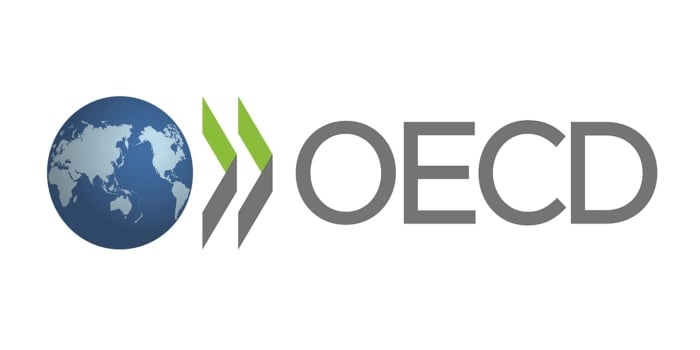Asia-Pacific should boost health spending to meet needs of fast ageing populations – OECD

23/11/2016 – Asia-Pacific countries should strengthen their health systems and sharply increase spending to deliver effective universal coverage in order to meet the changing needs of their fast ageing populations, according to a new OECD report.
Health at a Glance Asia/Pacific 2016 – Measuring Progress Towards Universal Health Coverage says that the share of the population aged 65 years and over in Asian countries is expected to increase by nearly two and half times in the next decades to reach 20.5% in 2050. Life expectancy at birth across 22 Asian countries reached 73.7 years in 2015, a gain of about 4.6 years since 2000. In comparison, OECD countries gained 3.4 years during the same period.
But a large regional divide persists: the country with the longest life expectancy is Hong Kong, China with 84 years for both men and women. Japan, Australia, Singapore, New Zealand, the Republic of Korea and Macao, China also exceeded 80 years for total life expectancy. In contrast, in Papua New Guinea and Lao PDR, a child born in 2015 can expect to live an average of less than or equal to 65 years of life.
The report reveals that out of an estimated 1.25 million deaths globally each year due to road accidents, 60% occur in Asia. And that the burden of road traffic injuries falls disproportionately on vulnerable road users – pedestrians, cyclists and motorcyclists.
Other findings of Health at a Glance Asia/Pacific 2016 include:
· A dramatic fall in the infant mortality rate across the region since 2000, with several countries experiencing declines of greater than 50%. At an average of 21.5 deaths per 1 000 live births in 2015, infant mortality is still five times the OECD rate
· Between 2000 and 2015, the average maternal mortality rate across Asian countries was cut by more than half. However, maternal mortality averages around seven deaths per 100 000 live births in OECD countries, while in Asian countries it is almost 13 times greater.
· There are too few doctors and nurses in the region, at around 1.3 and 3.2 per 1 000 population respectively – well below the OECD average of 3.3 and 9.1 – to cope with the demands in particular of an ageing population.
· While the number of hospital beds per capita is at 3.3 per 1 000 population on average across Asia, below the OECD average of 4.7, health services for an ageing population will need to be centred on primary care and continuity, away from hospital centric systems.
· Asian economies spend just over USD 930 per person per year on health, against USD 3 618 in OECD countries. This amounts to 4.7% of gross domestic product, on average, in the Asian region, compared to 9.3% in OECD countries in 2014.
· The share of public spending in total health spending is much lower in Asia compared to OECD countries – 50.5% vs 72.7% respectively – whereas spending on pharmaceuticals accounted for almost one third of all health expenditure on average across Asian countries in 2014.
Health at a Glance Asia/Pacific 2016, a joint publication with the World Health Organisation, presents key indicators on health status, determinants of health, health care resources and utilisation, health expenditure and financing, and quality of care for 27 Asia/Pacific countries and economies. This report offers a comprehensive and user-friendly framework to help policy makers design and implement better policies to support countries’ progress towards universal health coverage – and improve the health of their populations.
More information, together with a downloadable PDF of the report, is available at www.oecd.org/health/health-at-a-glance-asia-pacific-23054964.htm.
For further information, contact Luca Lorenzoni of the OECD Health Division (+33 1 45 24 76 21 or luca.lorenzoni@oecd.org)
Jun Gao of the Division of Health Sector Development of the World Health Organization Regional Office for the Western Pacific (+63 2 5289830 or gaoj@who.int)
Mark Landry of the Department of Health Systems Development of the World Health Organization Regional Office for South-East Asia (+91 11 43040287 or landrym@who.int)
Working with over 100 countries, the OECD is a global policy forum that promotes policies to improve the economic and social well-being of people around the world.
Our team at Inergency is excited to announce our partnership with @Disasters Expo Europe, the leading event in disaster management.
Join us on the 15th &16th of May at the Messe Frankfurt to explore the latest solutions shaping disaster preparation, response and recovery.
To all our members, followers, and subscribers in the industry, This is YOUR opportunity to explore the intersection of sustainability and disaster management, connect with industry leaders, and stay at the forefront of emergency preparedness.
Don't miss out! Secure your complimentary tickets now and be part of the conversation driving innovation in disaster resilience. ➡️ https://lnkd.in/dNuzyQEh
And in case you missed it, here is our ultimate road trip playlist is the perfect mix of podcasts, and hidden gems that will keep you energized for the entire journey


